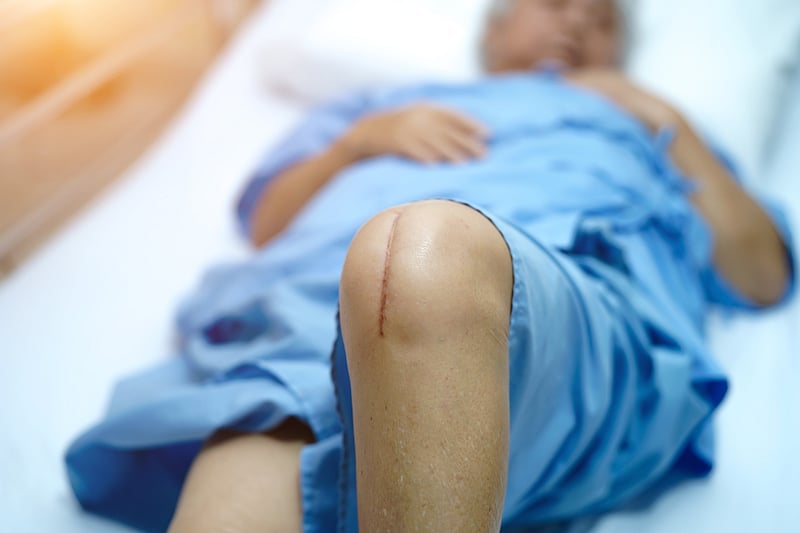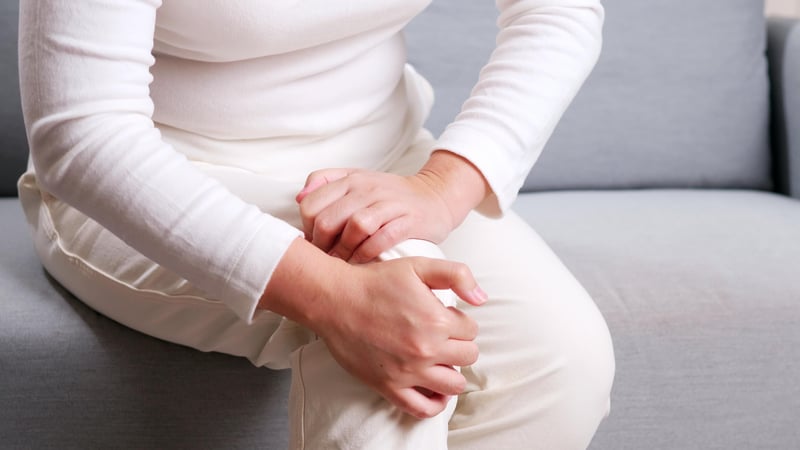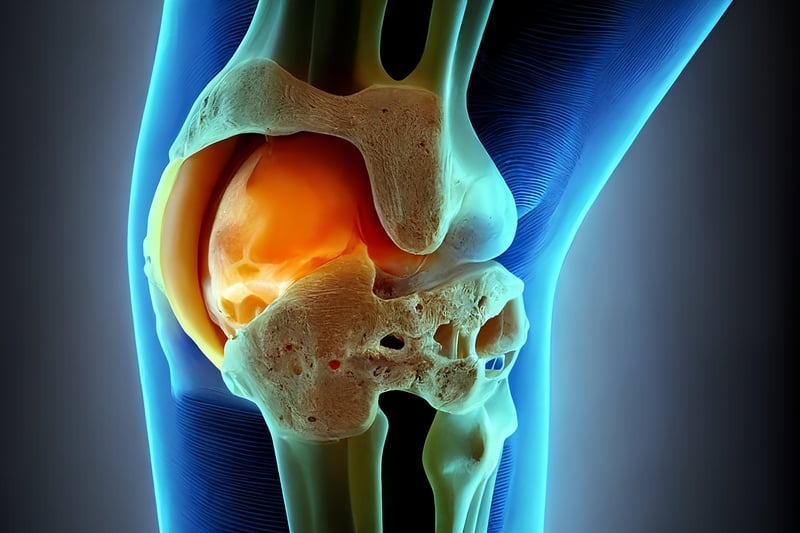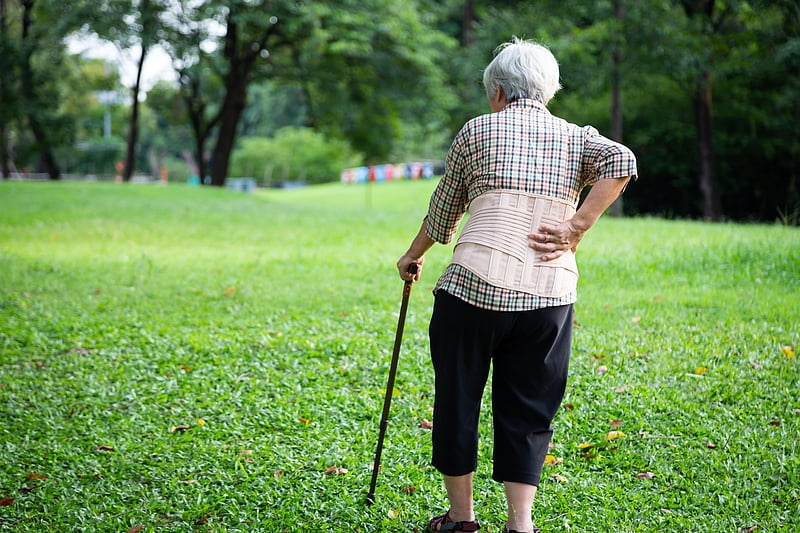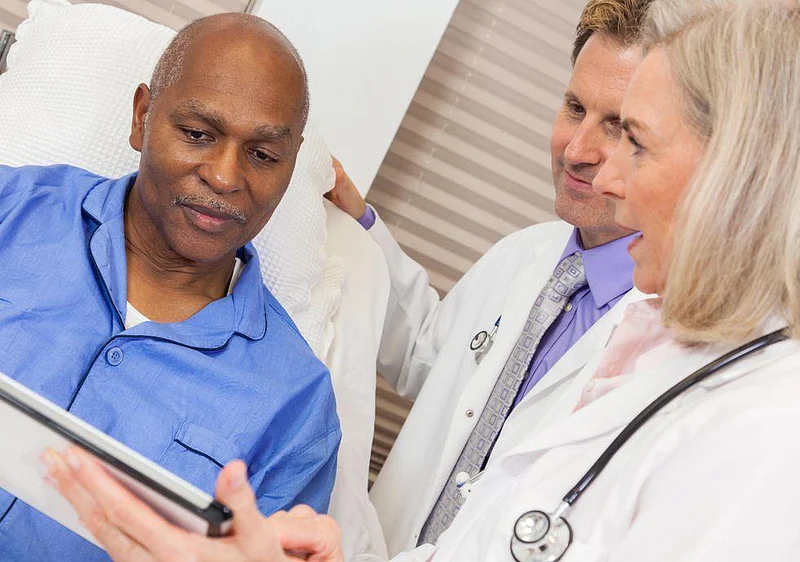Manténgase sano!
Resultados de su búsqueda "Artificial Knees".
Resultados de noticias de salud - 17
Millions of people undergo joint replacement surgery every year. To prevent infection, doctors often give them a second antibiotic -- but new research suggests this can backfire.
Adding a second antibiotic at the time of hip and knee replacement surgery may actually increase infections, researchers in Australia found.
"Given the number of joint replacements performed in Austral...
- HealthDay Reporter
- Cara Murez
- |
- October 19, 2023
- |
- Página completa
Blaming your ailing knees for feeling down?
Unfortunately, even after physical pain eases, healing or fixing an injured joint often does not improve mental health, research shows.
A new study found that anxiety symptoms only improved when a patient had major improvements in physical function.
Depression, meanwhile, did not meaningfully improve even when the improvements to phy...
- HealthDay Reporter
- Cara Murez
- |
- June 30, 2023
- |
- Página completa
An anti-inflammatory drug that has been around for over 2,000 years might help delay a very modern problem: hip and knee replacements.
That's the suggestion of a new study finding that older adults who used the drug -- called colchicine -- were less likely to need hip or knee replacement surgery over the next two years, versus those given placebo pills.
The study, published May 30 i...
- HealthDay Reporter
- Amy Norton
- |
- May 31, 2023
- |
- Página completa
While joint reconstruction surgeries are fairly common, they may be anything but routine for people with sickle cell disease.
Patients with the blood disorder who undergo total knee replacement are at a higher risk for complications than other patients, according to a new large-scale study.
"SCD patients undergoing total knee replacement need a multidisciplinary approach and ma...
- HealthDay Reporter
- Cara Murez
- |
- April 19, 2023
- |
- Página completa
The prices that health insurers agree to pay for joint replacement surgery vary widely and are unrelated to conventional measures of the quality of care.
That's the conclusion of a new study that found who is footing the bill is the biggest influence on the price tag.
Total joint replacements (TJR) -- especially of knees and hips -- are the most common in-hospital surgeries for U.S....
- HealthDay Reporter
- Cara Murez
- |
- December 26, 2022
- |
- Página completa
A person doesn't have to pack on very many extra pounds before their risk of needing a knee replacement increases substantially, a new evidence review has found.
Weight gain of just 11 pounds increases a woman's odds of needing total knee replacement surgery by one-third, and a man's by one-quarter, researchers rep...
- HealthDay Reporter
- Dennis Thompson
- |
- October 19, 2022
- |
- Página completa
Losing excess weight may not only help prevent knee arthritis, but also slow its progression in people who already have the condition, a recent study suggests.
Researchers found that among over 9,000 middle-aged and older adults, those who managed to shed some extra weight benefited their knees in two ways...
- HealthDay Reporter
- Amy Norton
- |
- September 23, 2022
- |
- Página completa
Researchers may have found a new way to help ease the pain of knee replacement surgery: infusing morphine directly into the shin bone.
The findings come from a recent study of 48 patients undergoing
Most people who have had a knee replacement would agree that the procedure brings relief from pain.
And following a comprehensive rehabilitation plan can make recovery quicker and easier, and improve long-term mobility, according to doctors at Penn Medicine, in Pennsylvania.
Typic...
- HealthDay Reporter
- Cara Murez
- |
- July 20, 2022
- |
- Página completa
If you're one of the estimated one million Americans having total hip or knee replacement surgery this year, some lifestyle changes might improve your chances of a good outcome, an expert says.
Lose weight safely through diet and exercise before surgery, said orthopedic surgeon Dr. Matthew Abdel. The ...
- HealthDay Reporter
- Robert Preidt
- |
- May 7, 2022
- |
- Página completa
Recovering from hip or knee replacement surgery can be tough for anyone, but a new study from one hospital showed that Black patients were less likely than white patients to be satisfied with their care after the procedure.
Researchers reviewed survey responses from more than 2,500 people who un...
- Consumer news
- |
- March 24, 2022
- |
- Página completa
Knee replacement surgery is increasingly common among people over 80 sidelined with knee pain, and the procedure isn't as hazardous for them as often assumed.
That's the main message from a new study of more than 1.7 million seniors who underwent knee replacement surgery.
The findings come as no surprise to Dr. Thomas Fleeter, whose oldest knee replacement patient was 96.
Age ...
- HealthDay Reporter
- |
- March 22, 2022
- |
- Página completa
For many people undergoing total hip or knee replacement, same-day surgery is a safe option, new research shows.
Among folks in overall good health, the study of nearly 1.8 million patients found similar post-op complication rates among those who had outpatient joint replacement surgery compared to those who spent a night or two in the hospital.
"Careful patient selection is the ke...
- HealthDay Reporter
- Alan Mozes
- |
- January 19, 2022
- |
- Página completa
Cortisone injections have gotten a bad rap in recent years as a treatment for arthritis pain, because steroids are known to damage cartilage and could potentially cause the joint to further deteriorate.
But a new study suggests that if used wisely, cortisone shots are as safe as another type of injection used to treat
Older adults have a higher risk of delirium after hip and knee surgery if they're taking anxiety, depression or insomnia drugs, researchers say.
"Our findings show that different classes of medicine are riskier than others when it comes to causing delirium after surgery, and the older the patients are, the greater the risk," said lead study author Gizat Kassie. He is a postdoctoral resear...
- HealthDay Reporter
- Robert Preidt
- |
- December 13, 2021
- |
- Página completa
After knee replacement surgery, many patients experience a level of pain that has them reaching for prescription opioid painkillers. Now new research suggests that using acupuncture during the operation may help reduce that pain without raising the risk of addiction.
"The opioid epidemic has been in the news and on our minds for years and has created an urgency for us to seek alternatives...
- HealthDay Reporter
- Denise Mann
- |
- October 12, 2021
- |
- Página completa
Golf after total knee replacement is apparently par for the course.
Researchers say most golfers can return to the links within five months of surgery and play as well -- or as poorly -- as they did before.
"A lot of patients come to the office wondering when they're going to be able to play or if they are going to ever be able to play, and if they can expect to be better or worse a...
- HealthDay Reporter
- Steven Reinberg
- |
- August 9, 2021
- |
- Página completa

